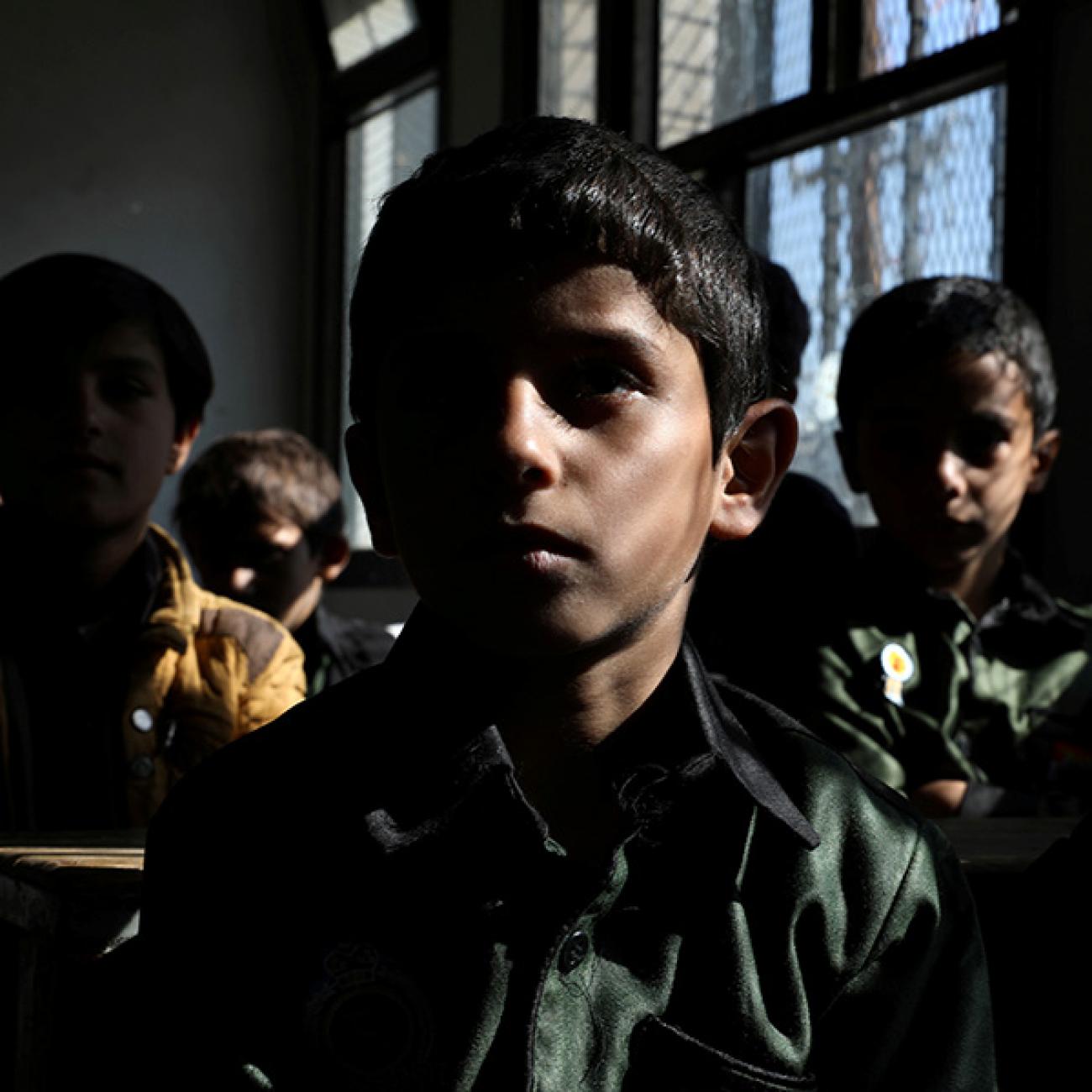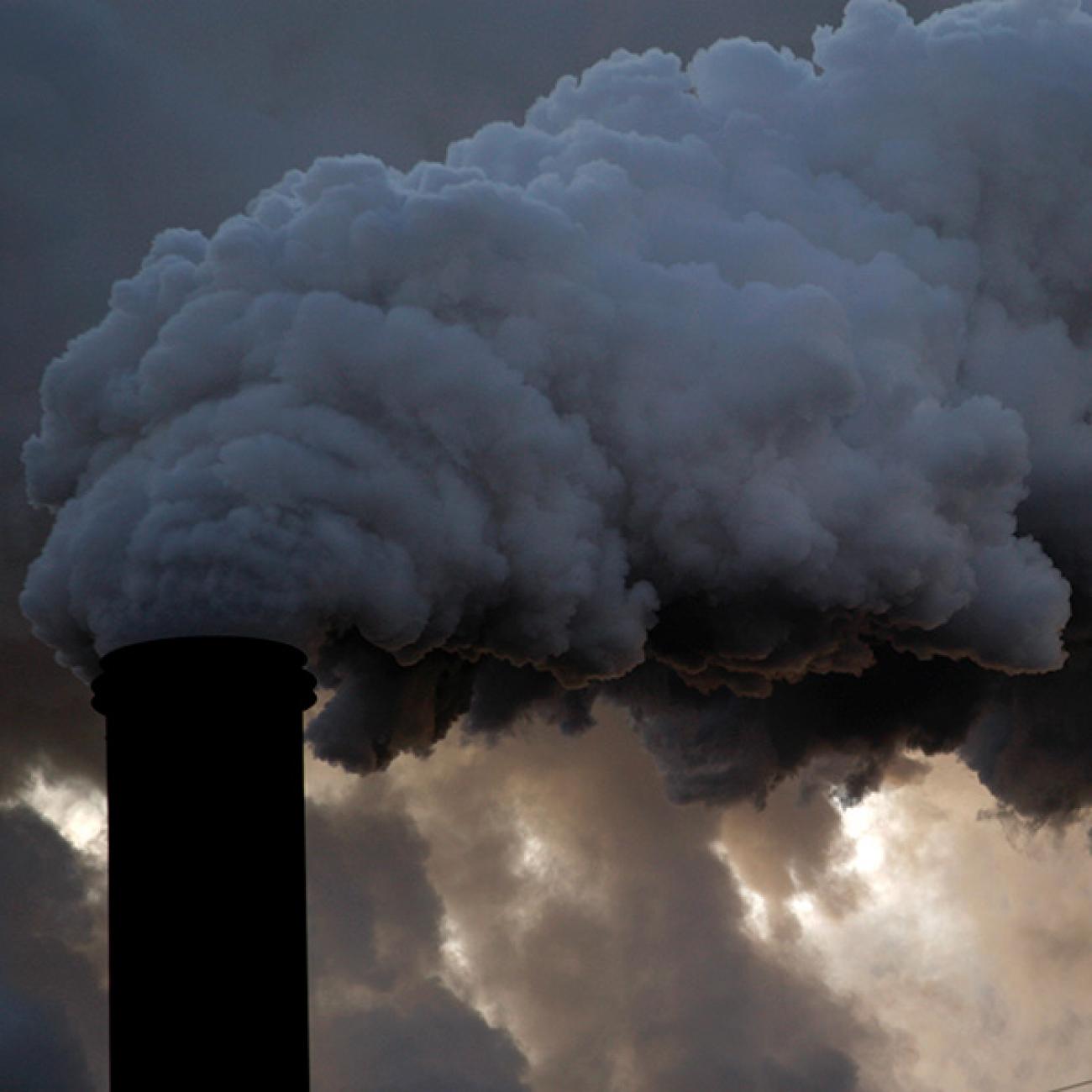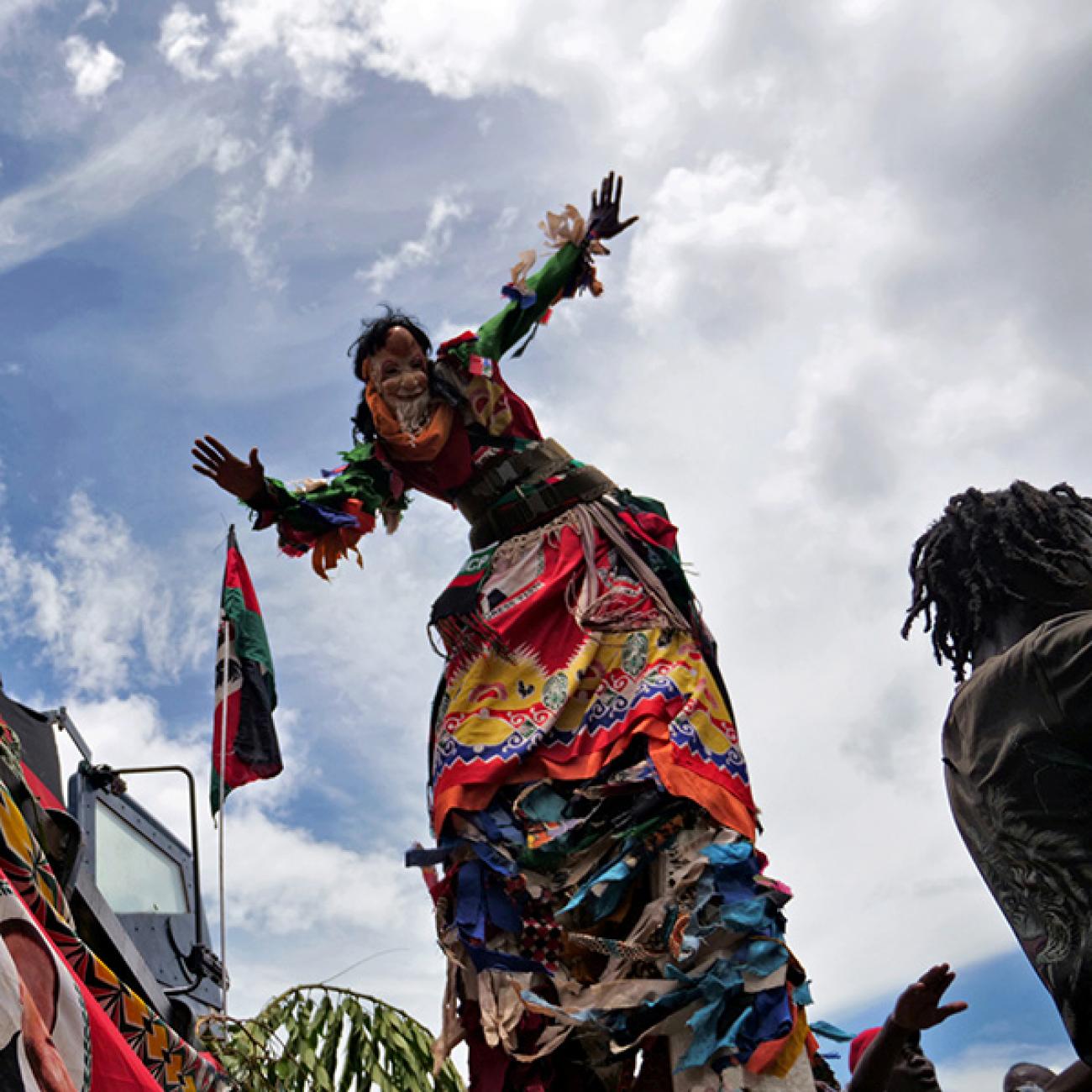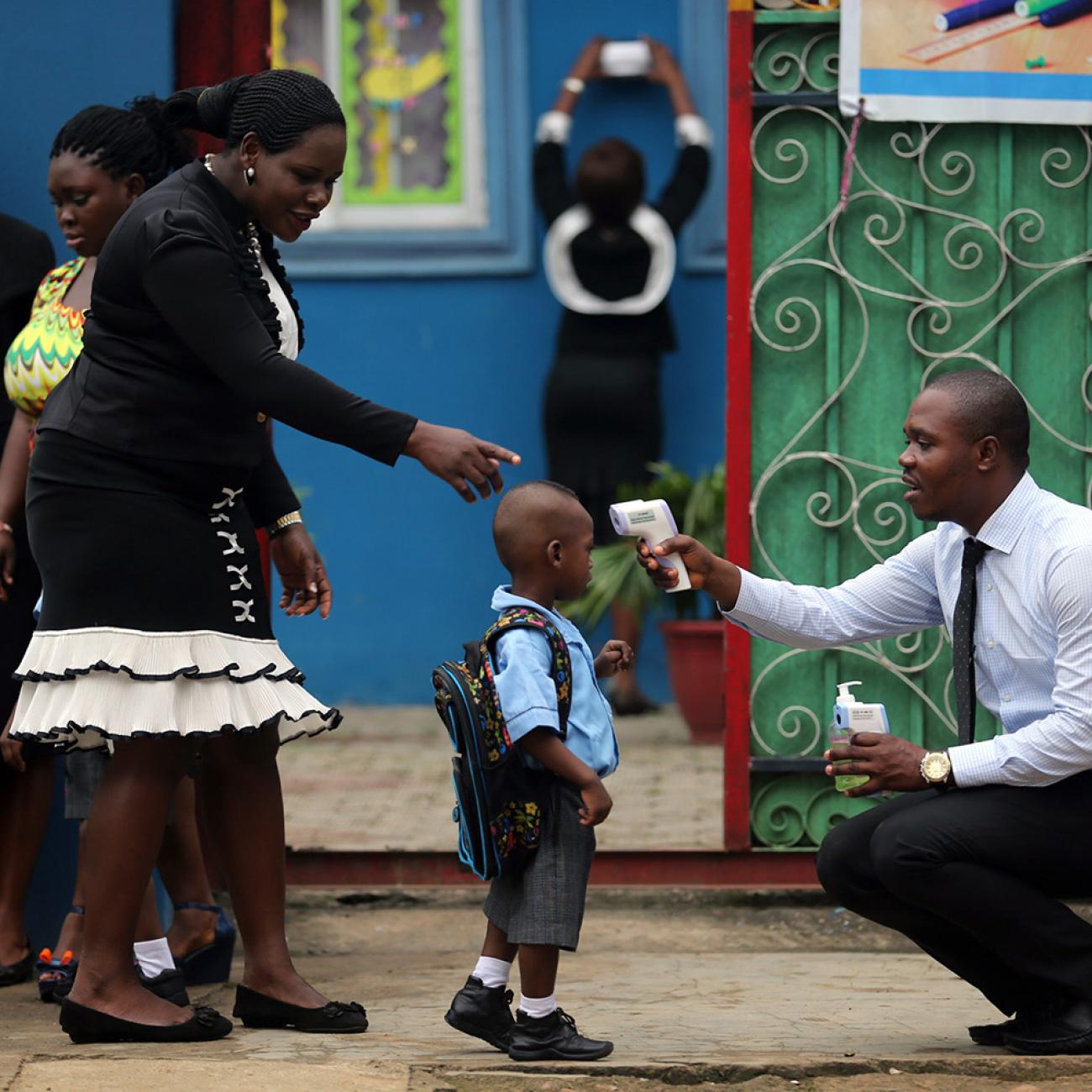The coronavirus pandemic is leading many countries to use emergency powers as an attempt to tackle the crisis, limit the spread of the virus, and protect the public. While the pandemic requires strong responses, we need to ensure that states do not normalize oppressive surveillance and undermine human rights, including the right to freedom of expression and information, and the right to privacy. The World Health Organization's (WHO) declaration of the coronavirus as a pandemic on March 11 prompted many countries to announce a state of emergency, thus opening the door for governments to exercise extraordinary powers.
The WHO declared COVID-19 a pandemic on March 11, 2020
The first case of COVID-19 in Nigeria was reported on February 27, 2020. To protect the health of the community and mitigate continued spread, President Muhammadu Buhari of Nigeria announced that a lockdown would come into effect on March 30, 2020 in the capital city, Abuja. Following this announcement, several other Nigerian state governments initiated restrictive measures on international travel, interstate travel, events and gatherings, schools, and nonessential services. There was also an intensifying focus on infection control measures, including identifying and isolating ill people, imposing curfews, and enforcing lockdowns.

The measures adopted by many of the states to curb the spread of the virus, have—and will continue to have—a restrictive impact on people's fundamental human rights, and relevant authorities should be careful that such violations do not result in violence, injuries, or death. Some of the basic human rights are asserted in the Universal Declaration of Human Rights, adopted in 1948 by the General Assembly of the United Nations (UN). Subsequent international legal instruments have further expanded human rights law. For instance, Article 12 of the International Covenant on Economic, Social and Cultural Rights provides that "States Parties to the present Covenant recognize the right of everyone to the enjoyment of the highest attainable standard of physical and mental health."
Everyone has the right to life
Words enshrined in the Nigerian constitution
Chapter IV of the 1999 Constitution of the Federal Republic of Nigeria (as amended) recognizes the right to life. It provides that "Everyone has the right to life, and no one shall be intentionally deprived of his life except in the execution of the sentence of a court for a criminal offence of which he has been convicted in Nigeria." The Constitution also guarantees the rights to freedom of expression, assembly, movement, and prohibits torture. Likewise, Article 6 of the African Charter on Human and Peoples' Rights provides the right to liberty and security of person.

However, in order to balance public health concerns and human rights protections, international law stipulates that public health may be invoked as a ground for limiting certain rights. Governmental public health actions must protect and advance the health of the population as a whole, while at the same time protecting basic human rights and social values. But it is important we monitor whether restrictions to our freedoms, including physical gatherings, are always legitimate. We have to be certain that state of emergency measures are not misused to abuse fundamental human rights, adopt unpopular policies without consultation, and do not remain in place long after the pandemic has lapsed.
The international law provides two ways in which a country can achieve such balance—protection of public health and derogation.

Protection of Public Health. The legal standards for assessing whether limitations on human rights are valid are spelled out in the Siracusa Principles, a non-binding document adopted by the UN Economic and Social Council in 1985. The document contains a list of safeguards that must be in place to ensure that in prioritizing the protection of the general public health, states must specifically see to it that these restrictions should at a minimum be: provided for and carried out in accordance with the law, directed toward a legitimate objective of general interest, strictly necessary in a democratic society to achieve the objective, the least intrusive and restrictive available to reach the objective, based on scientific evidence and neither arbitrary nor discriminatory in application, of limited duration, respectful of human dignity, and subject to review.
Derogation in Times of Public Emergency. Article 4 (1) of the International Covenant on Civil and Political Rights (ICCPR) permits states parties to derogate temporarily from some of their obligations to human rights treaties in the event of a "public emergency which threatens the life of the nation." A country that adopts this measure has to issue a formal statement that it cannot uphold the rights of the general public. They must explain and justify the need to derogate for international human rights standards. International law requires the state to notify the UN of any derogation and the state must officially proclaim the state of emergency to its own people, using its own domestic mechanisms for doing so. Derogations are only permitted in the following situations: in extreme circumstances, the measures must be proportionate, it must not be inconsistent with other international law obligations, and it must not be discriminatory.

Governments have an obligation to protect the rights of the general public and there has been need for states to place restrictions on freedom of expression for reasons of combating the spread of fake news. But in doing so, Governments are responsible for providing information necessary for the protection and promotion of rights, including the right to health. All information about COVID-19 should be accessible and available in multiple languages, including for those with low or no literacy. This information should be played on national radio stations across and volunteers who have received specialized training about COVID-19 prevention and bystander intervention methods, should be dispersed to rural areas to further educate people on the need to keep healthy. Reliable and unfettered access to the internet should be maintained, and steps should be taken to ensure internet access is available to people across all income levels.
Crises should not be used as a pretext to suppress rights in general—or freedom of assembly in particular
As regards limiting the freedom of movements, governments have to ensure that such restrictions are lawful, necessary, and proportionate. We need to avoid any overly broad restrictions on movement and personal liberty and only move towards mandatory restrictions when scientifically warranted and necessary and when mechanisms for support of those affected can be ensured. Voluntary self-isolation measures are more likely to induce cooperation and protect public trust than coercive measures. When quarantines or lockdowns are imposed, governments are obligated to ensure access to food, water, health care, and care-giving support. Governments have to ensure that the public health emergencies are not used as a pretext for rights infringements. It is imperative that crises are not used as a pretext to suppress rights in general, or the rights to freedom of peaceful assembly and of association in particular. The crisis is no justification for excessive force to be used when dispersing curfew breakers, nor for disproportionate penalties to be imposed in other instances.

It is vital that any limitations imposed be removed and that full enjoyment of the rights to freedom of peaceful assembly and association be restored when the public health emergency caused by COVID-19 ends. In this regard, states should incorporate sunset clauses into any states of emergency or laws passed in relationship to the current crisis, guaranteeing their automatic expiry when the public health emergency has ended. It is particularly important, moreover, that judicial and parliamentary checks and balances are strengthened in order to avoid excessive and broad power in the executive branch and to ensure a check on the arbitrary exercise of executive authority.








